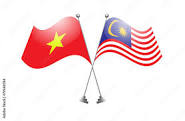TAIPEI (Taiwan News) – Under Taiwan government’s “New Southbound Policy,” Malaysia has been identified as one of the most important nations for Taiwan to deepen ties and expand links with the region.
The New Southbound Policy, introduced by President Tsai Ing-wen, aims to strengthen Taiwan’s trade and economic ties with countries in South and Southeast Asia, including ten ASEAN nations along with India, Pakistan, Bangladesh, Nepal, Sri Lanka, Bhutan, and New Zealand and Australia.
Ministry of Economic Affairs described the scope of the policy as unfolding into three phases, with each of them containing six of the targeted countries. Malaysia is one of the six to be included in the first phase.
According to the Malaysian Friendship & Trade Centre in Taipei (MFTC), Taiwan is the Southeast Asian nation’s sixth largest trading partner. In recent years, significant progress has been made in terms of bilateral relations, and especially in the field of education, as Malaysia became the largest source for international studying in Taiwan.
Currently, around 16,000 Malaysian students are receiving education in the island nation, while Taiwan’s Education Ministry announced last year that it will raise the scholarship quotas for Malaysian students from 20 to 30, an effort to attract more Malaysian students to come study in Taiwan and an important step in advancing the government’s policy.
Datuk Adeline Leong, president of the MFTC, said Malaysia welcomes Tsai administration’s “New Southbound Policy,” while expressing her hope to continue with efforts to improve trade, educational, and cultural exchanges between the two countries.
The Southeast Asian nation is also a pioneer in the halal industry. Its halal certification body is well-established and its logo accepted worldwide. Therefore, in order to attract more Muslim tourists from the Southeast Asian countries, it is important for Taiwan to develop Halal products, the field in which Malaysia could be of great assistance, said the MFTC’s Deputy Representative and Director of Economics, Anwar Udzir.




